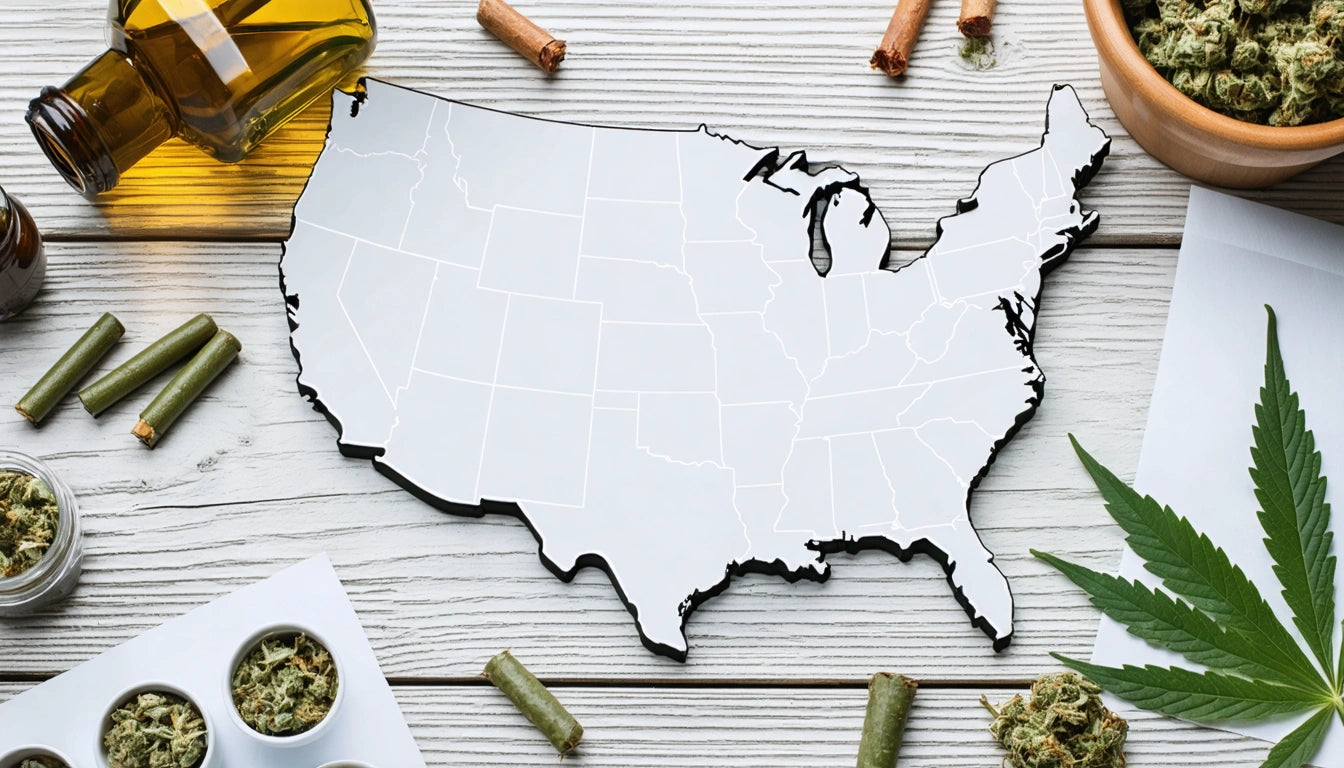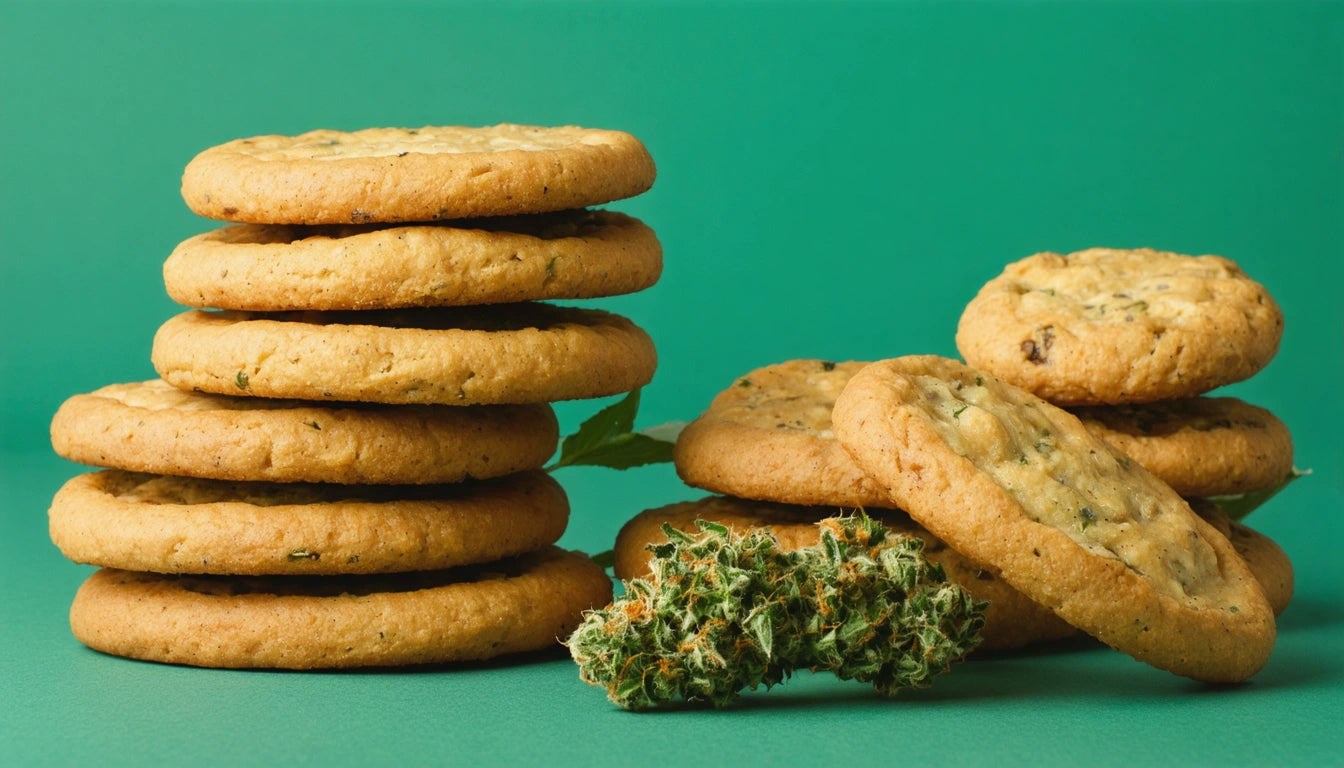Table of Contents
- Recreational Marijuana: States Where Pot Is Legal
- Medical Marijuana: States With Legal Medicinal Cannabis
- Partially Legal States: Decriminalization and Limited Programs
- Global Marijuana Legalization Status
- Compliance Considerations for Legal Cannabis Markets
- Legalization Outlook: What's Next for Cannabis Reform
Where Is Marijuana Legal for Recreational and Medicinal Use?
The legal landscape for marijuana continues to evolve rapidly across the United States and globally. Understanding where pot is legal for recreational and medicinal purposes is crucial for consumers, businesses, and policymakers navigating this dynamic industry. This comprehensive guide outlines the current status of marijuana legalization, highlighting key differences between recreational and medical programs.
Recreational Marijuana: States Where Pot Is Legal
As of 2023, recreational marijuana is legal in 23 states plus Washington D.C. and Guam. In these jurisdictions, adults 21 and over can legally purchase and possess cannabis for personal use, though specific regulations vary by location.
According to current legalization data, the following states have fully legalized recreational marijuana:
- Alaska
- Arizona
- California
- Colorado
- Connecticut
- Illinois
- Maine
- Maryland
- Massachusetts
- Michigan
- Minnesota
- Missouri
- Montana
- Nevada
- New Jersey
- New Mexico
- New York
- Ohio
- Oregon
- Rhode Island
- Vermont
- Virginia
- Washington
In these states, adults can typically purchase limited quantities from licensed dispensaries. However, public consumption remains restricted in most areas, and possession limits vary significantly between jurisdictions.
Medical Marijuana: States With Legal Medicinal Cannabis
Medical marijuana programs exist in 38 states, providing patients with qualifying conditions access to cannabis for therapeutic purposes. These programs typically require physician recommendation and patient registration.
States with medical-only marijuana programs include:
- Alabama
- Arkansas
- Delaware
- Florida
- Hawaii
- Iowa
- Kentucky
- Louisiana
- Mississippi
- New Hampshire
- North Dakota
- Oklahoma
- Pennsylvania
- South Dakota
- Utah
- West Virginia
Patient qualification requirements and product restrictions vary widely across these medical programs. For businesses operating in these markets, specialized equipment for consistent product preparation becomes essential to meet strict medical compliance standards.
Partially Legal States: Decriminalization and Limited Programs
Several states have implemented decriminalization measures without full legalization. In these areas, possession of small amounts of marijuana may result in civil penalties rather than criminal charges, though sales remain prohibited.
States with decriminalization or limited CBD-only programs include:
- Georgia (limited medical CBD)
- Indiana (CBD only)
- Kansas (considering medical)
- Nebraska (decriminalized small amounts)
- North Carolina (decriminalized small amounts)
- Tennessee (limited medical CBD)
- Texas (limited medical program)
- Wisconsin (CBD only)
- Wyoming (considering medical)
These partial measures represent transitional steps as many states move toward more comprehensive legalization. Recent legislative updates suggest this category continues to shrink as more states adopt expanded programs.
Global Marijuana Legalization Status
Globally, marijuana legalization varies dramatically. Countries with nationwide recreational legalization include:
- Canada
- Malta
- Mexico (decriminalized with legalization pending implementation)
- Thailand
- Uruguay
Many other nations have implemented medical cannabis programs or decriminalization measures. This global guide provides detailed information on international marijuana laws and regulations.
European countries have generally taken more conservative approaches than North America, though Germany, Luxembourg, and several others are actively developing legalization frameworks. In South America, Uruguay became the first country to fully legalize cannabis in 2013.
Compliance Considerations for Legal Cannabis Markets
Operating legally in cannabis markets requires strict adherence to local regulations. Key compliance considerations include:
- Licensing requirements for cultivation, processing, and retail
- Product testing and quality assurance protocols
- Packaging and labeling requirements
- Track-and-trace systems for inventory management
- Age verification and purchase limits
- Marketing and advertising restrictions
These regulations vary significantly between jurisdictions, creating complex compliance landscapes for businesses operating across multiple states. Understanding where pot is legal recreationally versus medicinally is just the beginning of navigating these regulatory frameworks.
Legalization Outlook: What's Next for Cannabis Reform
The momentum toward marijuana legalization continues to build across the United States and globally. Several factors are shaping the future landscape:
- Federal reform efforts in the United States
- State ballot initiatives and legislative action
- Growing public support for legalization
- Economic benefits of regulated cannabis markets
- International treaty reconsiderations
Federal legalization prospects remain uncertain, though incremental reforms like banking access and research expansion continue to advance. States where pot is legal have demonstrated the economic and social benefits of regulated markets, providing models for future adopters.
As public opinion continues to favor legalization, more states are likely to implement recreational programs, and existing medical markets may expand access. The question of where marijuana is legal will continue to evolve, with each jurisdiction developing unique regulatory approaches based on local priorities and concerns.
For consumers and businesses alike, staying informed about the changing legal status of marijuana across different jurisdictions remains essential for responsible participation in this rapidly evolving industry.











Leave a comment
All comments are moderated before being published.
This site is protected by hCaptcha and the hCaptcha Privacy Policy and Terms of Service apply.